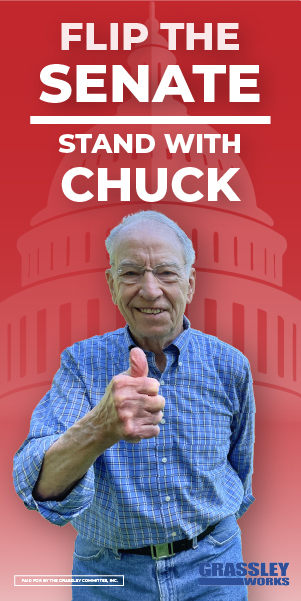In a recent editorial The Des Moines Register criticized Governor Kim Reynolds’ vision for education in Iowa. During the legislative session, Governor Reynolds made students a priority and she led the nation in requiring Iowa schools to offer the option of 100 percent in-person learning. By advancing more parental choice in education, Governor Reynolds is placing families first. Education should not be about school bureaucracy, but rather creating the best opportunities, reducing barriers, and focusing on outcomes for children.
Governor Reynolds, in her Condition of the State Address, outlined a vision for education when she proposed the Students First Act. This bold education reform plan placed Iowa students first by removing barriers to educational opportunity. The goal was to ensure that socioeconomic status and zip codes did not limit the ability of parents to provide the best education for their children.
Another policy goal was expanding open enrollment in Iowa. The legislature responded by not only reducing barriers to open enrollment, but also ending voluntary diversity requirements. Five school districts in Iowa had voluntary diversity plans, which created barriers for students who were trying to open enroll out of that specific district. This means that over 58,000 students, based on 2019 enrollment, will now have less restrictions to open enroll into a better school. This opens doors of opportunity for thousands of families in Iowa. Those students who were restricted as a result were not “awash in educational options” as the Register argues.
The Register’s editorial is also critical of the legislature’s expansion of charter schools. Iowa can look to our neighbors in Wisconsin and see the success of their charter schools. Milwaukee, specifically, is a robust marketplace of traditional public, public charter, and private schools. Peer-reviewed and published research from national and Wisconsin organizations, along with data from the state’s department of education, shows that Milwaukee charter schools outperformed the local school district in reading and math.
The Wisconsin Institute for Law & Liberty’s 2019 Apples to Apples report found that both charter and private schools increased education quality. The study noted that 5 of the top 20 schools were private voucher schools and 4 of the top 20 were charter schools. A recent study by the Thomas B. Fordham Institute analyzed the impact of charter schools on traditional public schools and found that they do not necessarily deprive public schools of resources, but could increase resources to the school district. A similar study in North Carolina found that charter schools did not create a financial hardship on area school districts.
The legislature also addressed the controversy surrounding radical curriculums, such as the use of critical race theory in classrooms. A measure was passed that prohibits schools from using curriculum that teaches critical race theory or the idea that America is inherently racist. Iowans are growing more concerned about some of the radical and ideological ideas being brought into classrooms. Is this radical curriculum that Iowa parents expect from schools to be the “bedrock of a literate, informed electorate”?
It is unfortunate that the Register’s editorial makes the unfair argument that school choice leads to a free-for-all in education. “In Iowa today, pretty much anything can be considered a ‘school’,” stated the editorial. The Register even goes on to insinuate that some parents don’t care to look after their children’s well-being, “An unknown number of Iowa youngsters have completely fallen off the education grid and may be learning nothing, assuming they are alive and well.” All Iowa parents should take offense to that!
This argument comes down to whether the state or the system cares more about children then parents do. Ask Virginia Walden Ford, the inner-city mother who formed the Washington D.C. grassroots organization, DC parents for school choice, “Through my time working with these families, I saw every myth about low-income parents shatter before my eyes, including the cruel tale that poor families refuse to take the time to get their children a good education.”
Ford goes on to say, “The truth is that hundreds of lives are changed for the better because of school choice programs. As more and more low-income and working-class families are participating in school-choice programs, we are seeing parental involvement soar. Parents know that their kids are going to succeed if the world is opened up to them, and they want to be part of that.” In other words, parents want more options besides the assigned neighborhood bureaucratic one size fits all public school.
Providing parents more educational options and opportunities does not undermine public education. Greater competition in education will only improve public education.
Governor Reynolds is working to ensure that parents of all students have as many options as possible to access the best educational opportunities for their children.
Walt Rogers is Deputy Director of Tax Education Foundation of Iowa; a public policy think tank. Rogers also served as a former state legislator from Cedar Falls and chair of the House Education Committee



